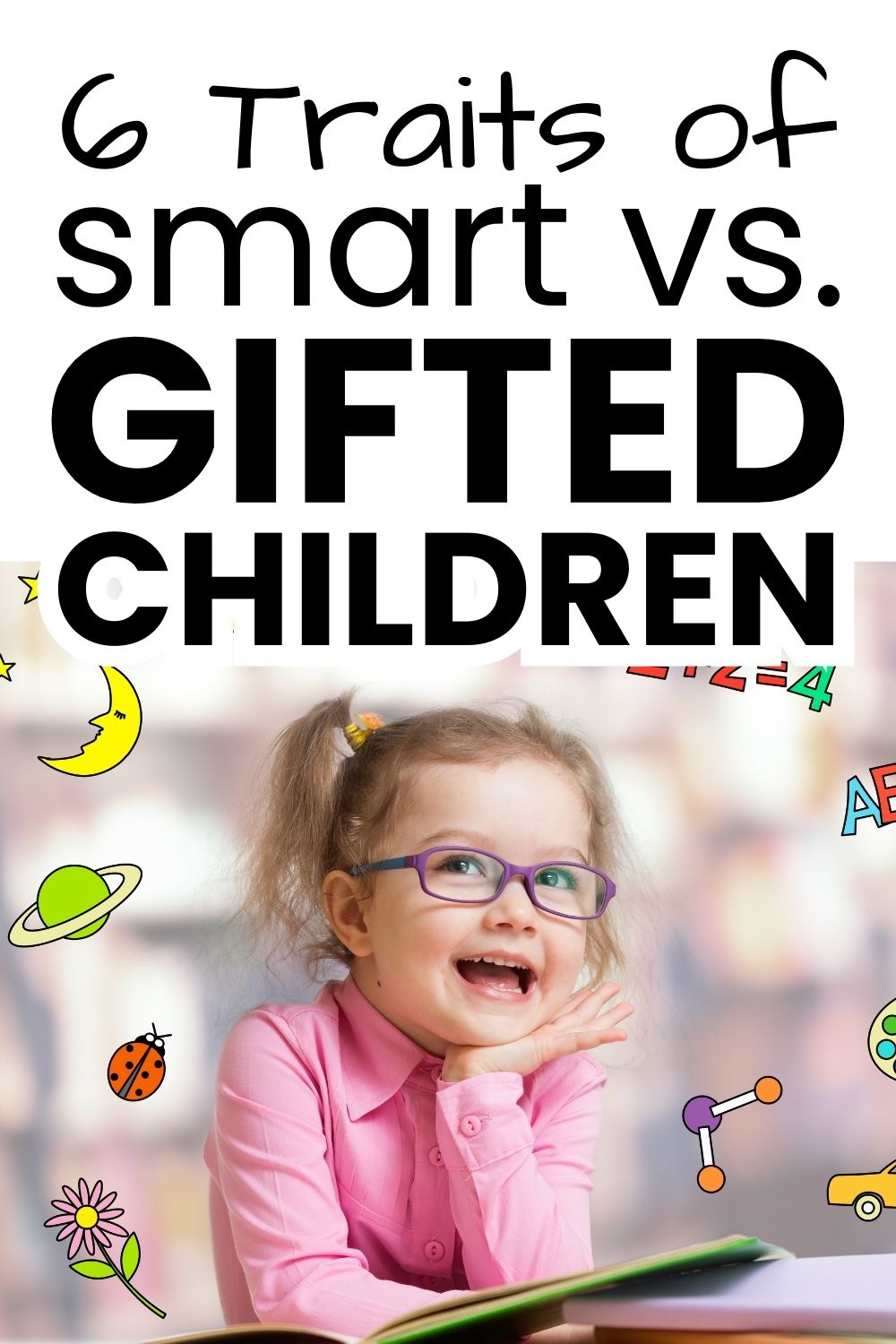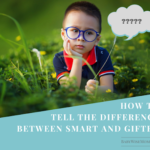What to look for in determining gifted vs smart kids. This post outlines 6 traits and what those traits look like in smart children vs gifted children.

At some point in your parenting, you might start to realize your child is quite smart. The word gifted might even pop into your head. At same time, you will find yourself wondering, is she gifted or just really smart? How do you even determine that?
The answer is in degrees. Not temperature, but the degree to which your child displays certain traits. For example, all children are curious. Smart children are more curious than the average child.
“…gifted children are far more curious about more things…”
(Parenting the Gifted Child page 28)
The difference between smart and gifted is intensity. Part of figuring out if your child is smart or gifted is recognizing how intensely your child displays certain traits compared to other children.
This post may contain affiliate links, which won’t change your price but will share some commission.
Post Contents
6 Traits to Compare with Gifted vs Smart
Here are six traits to consider.
1-Questioning Style:
“Smart children as questions that have answers. Gifted children ask questions about abstract ideas, concepts, and theories that may not have easy answers.” page 28
All kids ask questions. Smart kids ask a lot of questions and those questions will impress you.
A gifted child will wear you down with questions you have never once in your life considered and have no base knowledge about.
2-Learning Speed and Application of Concepts:
Smart children learn step-by-step. They can easily learn a concept, and learn one step at a time. Gifted children can skip steps. They will do something like start with step one, move to step two, then catch on to what is going on and leap to step 10.
3-Emotional Outlook:
Smart children can get over “an upsetting incident fairly easily” (page 28). Gifted children can be all-consumed by the emotions. “Their intense concerns may intrude into their thoughts for days or weeks following an event” (page 29). Again, gifted children have an intensity. Not every gifted child is emotionally intense, but is quite common. It is even said by some that the more emotional intense the child, the more gifted the child.
>>>Read: Emotional Intensity in Gifted Students Book Review
4-Level of Interest:
Smart children ask a lot of questions and want to know a lot about a lot of things. “Gifted children show an intense curiosity about nearly everything or immerse themselves in an area that interests them” (page 29).
Every detail must be known. Answers only bring more questions.
5-Language Ability:
Smart children have a high vocabulary but typically speak words on their age level. Gifted children use advanced vocabulary. They also “…understand verbal nuances that escape others, enjoy wordplay and puns, and often talk over the heads of their playmates (and sometimes over adults, too)” (page 29).
6-Concern With Fairness:
Smart children worry about fair, but usually in relation to themselves. Gifted children are concerned with fairness for people besides themselves.
A gifted child will typically be concerned about issues at a global level. They worry about how issues are affecting their community, nation, and world. They watch gas prices and talk to you about the outlook of fossil fuels.
Pros and Cons of Gifted Traits
All of these six traits can be strengths, but can of course create difficulties among relationships. An intense level of interest, for example, can lead to exasperation to you as a parent as you hear about something over, and over, and over again (enough with the LEGOs already!!!). Concern with fairness can lead to your child bossing other children (or adults!) around when they see injustice and inserting themselves into situations that aren’t their place. A child who takes a long time to get over something emotionally might appear spoiled. Having most things come so easily to a child can lead to them having no interest in practicing and working on things that are not easy to them.
Conclusion
As you consider if your smart child is gifted or simply really smart, consider the intensity level of these six areas. Be sure to also read up on the 15 Common Characteristics of Gifted Children.
Related Posts
- A Parent’s Guide to Gifted Children
- 4 Common False Assumptions About Gifted Children
- Extroverts and Introverts: How it Affects Giftedness
- Addressing the Emotional Needs of a Gifted Child
- How To Teach a Gifted Child Communication Skills
- What is Giftedness?

This post first appeared on this blog in February of 2017


